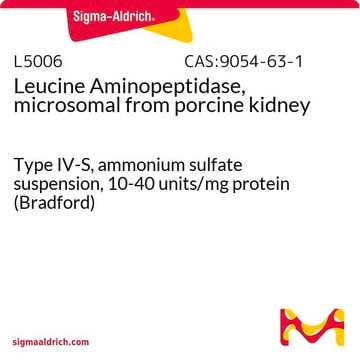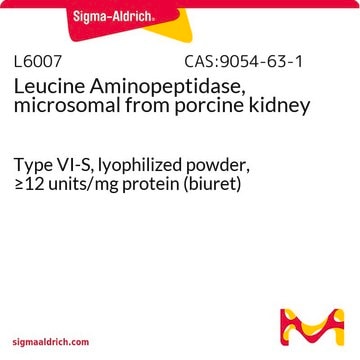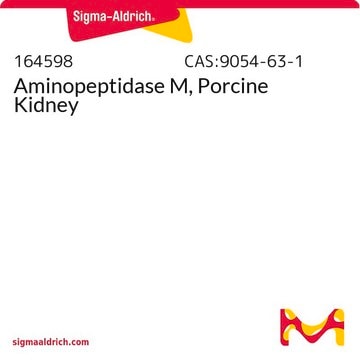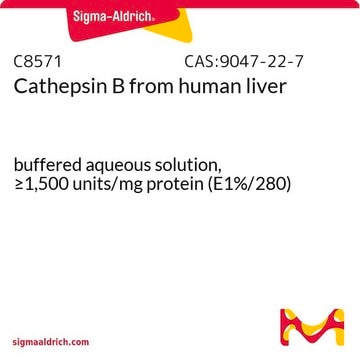L9776
Leucine Aminopeptidase, microsomal from porcine kidney
suitable for protein sequencing, BioReagent, lyophilized powder
Synonym(s):
Aminopeptidase M, Aminopeptidase N, Cathepsin III, LAP, Leucinamide aminopeptidase, Leucinaminopeptidase
About This Item
Recommended Products
product line
BioReagent
form
lyophilized powder
packaging
vial of 50 μg
suitability
suitable for protein sequencing
application(s)
metabolomics
vitamins, nutraceuticals, and natural products
storage temp.
−20°C
Looking for similar products? Visit Product Comparison Guide
General description
Application
- in proteomics analysis
- as a treatment for protein depolymerization reaction
- to test its effect on the degradation of human recombinant IL-8
Biochem/physiol Actions
Unit Definition
inhibitor
Signal Word
Danger
Hazard Statements
Precautionary Statements
Hazard Classifications
Eye Irrit. 2 - Resp. Sens. 1 - Skin Irrit. 2 - STOT SE 3
Target Organs
Respiratory system
Storage Class Code
11 - Combustible Solids
WGK
WGK 3
Flash Point(F)
Not applicable
Flash Point(C)
Not applicable
Personal Protective Equipment
Certificates of Analysis (COA)
Search for Certificates of Analysis (COA) by entering the products Lot/Batch Number. Lot and Batch Numbers can be found on a product’s label following the words ‘Lot’ or ‘Batch’.
Already Own This Product?
Find documentation for the products that you have recently purchased in the Document Library.
Customers Also Viewed
Our team of scientists has experience in all areas of research including Life Science, Material Science, Chemical Synthesis, Chromatography, Analytical and many others.
Contact Technical Service















